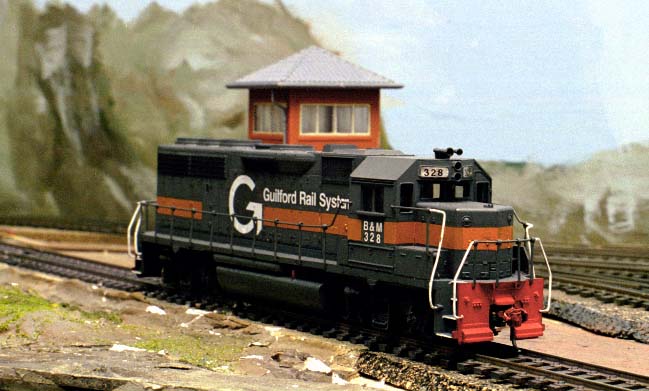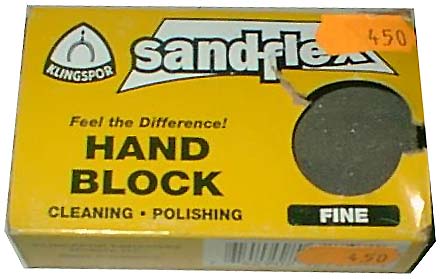Tips for Beginners
I'm pretty much a beginner, myself, but I surely can pass along things
on my model railroad that I like and don't like.

Do Athearn Gears Really Have Flash?
While assembling, painting and tuning a Athearn GP 40-2 kit, I took a close
look at the gears after removing them from the gear towers. I have read in
several places how flash should be removed from gears in Athearn locomotives
in order to get a smoother running locomotive. However during my previous
projects, I never discovered anything to remove. This time, I took a look
at one of the gears under a microscope. At 20x magnification, I did discover
a bit of flash between a couple of the teeth. Other gears also showed a bit
of flash, as well. This flash was at the side of the gear at bottom of the
valley between the teeth. It can be detected by simply running a pick through
each valley. If it hangs up a bit at the edge of the tooth, you probably
have some flash there. Use the pick or tiny file to remove this flash.
This new locomotive runs much smoother than my other Athearn locomotives
at low speed, which I attribute to this minor bit of surgery. There is still
some rattling in the drive line at medium and high speeds, but that is a
different story.

Atlas snap switches

Atlas #4 next to installed Altas Snap Switch
If I was to start over, I would not bother using them, and would have
used their number 4 switches instead. The snap switches seem to work OK.
It is just that the number 4's look better and seem to take very little
additional space. Also, the twin coil switch machines melt down if you
accidentally leave something on top of the switch. Someday I will replace
all of my Atlas twin coil switch machines with either ground throws or tortoise
switch machines. I think ground throws would be a good way to start, if
money is a factor.
Layout height for folks with small children
I've got some small children, but I still made my layout high. Lowest track
elevation is about 50". I would definitely keep it that way next time around.
The kids can climb on chairs to see what's happening, but they really can't
reach too far onto the layout itself. This keeps scenery repairs to a minimum.
Track plan features I would recommend including
A way to have continuous running. We do this far more than we spend time
at switching, even though I like switching, too.
Keep it small, at least to start. My basic 5' by 9' layout has kept me
busy for over 1 and 1/2 years, and easily could keep me going at least that
much longer. Make provisions for extending the railroad, like I have, and
it can grow as time goes by.
A way to reverse train direction and have trains pass one another, either
a wye or a reversing loop and a passing siding. I like being able to position
my rolling stock and engines anywhere I want with out having to use the five
finger switcher.
Provisions for adding a yard. If you like the hobby, you will soon have
more equipment than you can easily fit on the layout.
A couple of tunnels. It's fun to watch kids guess at where the trains
is going to come out next.
Dirty Track and Wheels
 For a while I was having terrible trouble with dirty locomotive wheels.
Turns out it was the track. A dealer sold me a klingspor sandflex hand
block (fine). I used to go over the track when the locomotive lights start
to flicker or the trains hesitate too much when running at a slow speed.
I would also clean the locomotive wheels at the same time. Since then I
have built a track cleaning car
that seems to do an even better job at this task.
For a while I was having terrible trouble with dirty locomotive wheels.
Turns out it was the track. A dealer sold me a klingspor sandflex hand
block (fine). I used to go over the track when the locomotive lights start
to flicker or the trains hesitate too much when running at a slow speed.
I would also clean the locomotive wheels at the same time. Since then I
have built a track cleaning car
that seems to do an even better job at this task.




